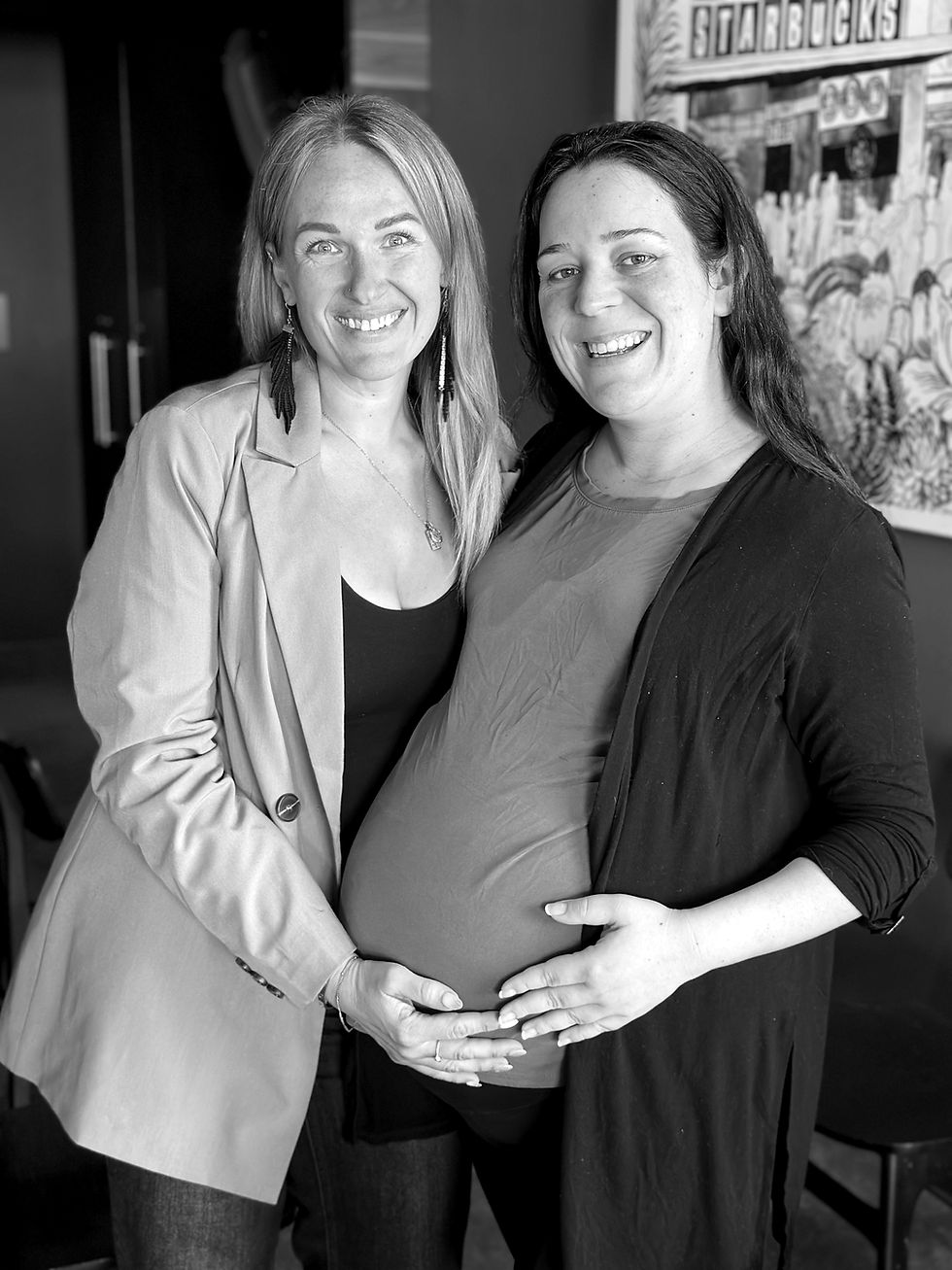Preparing for Delivery as a Surrogate: Honoring Your Choices
- Hive Surrogacy

- Aug 12, 2025
- 3 min read

So, you’re pregnant with a surrogate baby, and delivery day is near. Whether you’re a first-time surrogate or this is your third journey, birth always carries emotions, hopes, and expectations. Maybe you envisioned a peaceful home birth, a cozy birth center experience, a hospital birth with a supportive team, or a planned repeat C-section. The beauty of birth is that we have choices, and as a surrogate, your autonomy and voice in those choices matter just as much.

But sometimes, birth doesn’t follow the plan.
And that’s where induction can come in, a curveball many of us aren’t fully prepared for.
Inductions can stir up a lot of emotions, fear, uncertainty, even grief for the birth you had imagined.
As a surrogate, this can feel even more complex. You’re carrying someone else’s child, but you’re the one in the delivery room, navigating your body’s experience, your emotions, your boundaries.
It’s normal to feel overwhelmed when things don’t go as expected. But it’s also possible to feel empowered, grounded, and supported, even when plans change.
One of the most important reminders in this space: you still have bodily autonomy. Being a surrogate doesn’t mean giving up your rights during birth. You have the right to ask questions, make informed decisions, and be part of every step of the process. Whether it’s about pain relief, induction methods, who’s in the room, or how you want to labour, you get a say.
So how do you roll with the punches of an unexpected induction, or any unplanned change in your birth journey?
1. A Supportive Healthcare Provider A provider who respects you, listens to you, and makes space for your voice is invaluable. You want someone who will not only explain what’s happening but will involve you in every decision.
2. A Doula in the Room Having a doula by your side can be transformative. They’re not just there for physical support, but also emotional reassurance, advocacy, and a calm presence in the room. A doula helps make the experience feel less clinical, and more human.
3. Your Partner Whether it’s a spouse, a friend, or someone else close to you, having a familiar face in the room can make you feel grounded. Their presence can help bring comfort, connection, and a reminder of your strength.
4. Involving the Intended Parents If you’re comfortable with it, keeping the intended parents involved and informed can be incredibly meaningful, for them and for you. They may not fully understand what you’re feeling or going through in the moment, but helping them stay connected can strengthen your shared journey. Whether they’re in the room or supporting from a distance, making sure they know what’s happening helps you feel seen and supported too.

Remember: this is still your birth experience. Even if it wasn’t what you planned, it’s still yours. It’s okay to feel disappointed, scared, or emotional about the changes. You can honor those feelings while still finding strength in the moment.
Birth is raw, real, and sometimes wildly unpredictable. But when you're surrounded by people who respect you, when your voice is heard, and your choices are honoured, you can move through the unexpected with resilience and power.
Whether you're birthing your own baby or bringing someone else's dream to life, your experience matters. You matter.




Comments